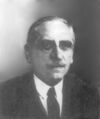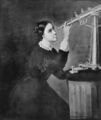June 28
1598: Cartographer and geographer Abraham Ortelius dies. Ortelius created the first modern atlas, the Theatrum Orbis Terrarum. He was also one of the first to imagine that the continents were joined together before drifting to their present positions.
1712: Philosopher and author Jean-Jacques Rousseau born. His political philosophy will influence the Enlightenment in France and across Europe.
1824: Physician, anatomist, and anthropologist Paul Broca born. He will discover that the brains of patients suffering from aphasia contain lesions in a particular part of the cortex, in the left frontal region -- the first anatomical proof of the localization of brain function.
1825: Chemist and academic Emil Erlenmeyer born. He will contribute to the early development of the theory of structure, formulating the Erlenmeyer rule, and designing the Erlenmeyer flask.
1875: Mathematician and academic Henri Lebesgue born. He will gain fame for his his theory of integration, which generalizes the 17th century concept of integration (summing the area between an axis and the curve of a function defined for that axis).
1889: Astronomer and academic Maria Mitchell dies. She was the first American woman to work as a professional astronomer.
1906: Physicist and academic Maria Goeppert-Mayer born. She will develop a mathematical model for the structure of nuclear shells, for which she will be awarded the Nobel Prize in Physics in 1963, which she will share with J. Hans D. Jensen and Eugene Wigner.
2023: Evening rain @ 9:03.







